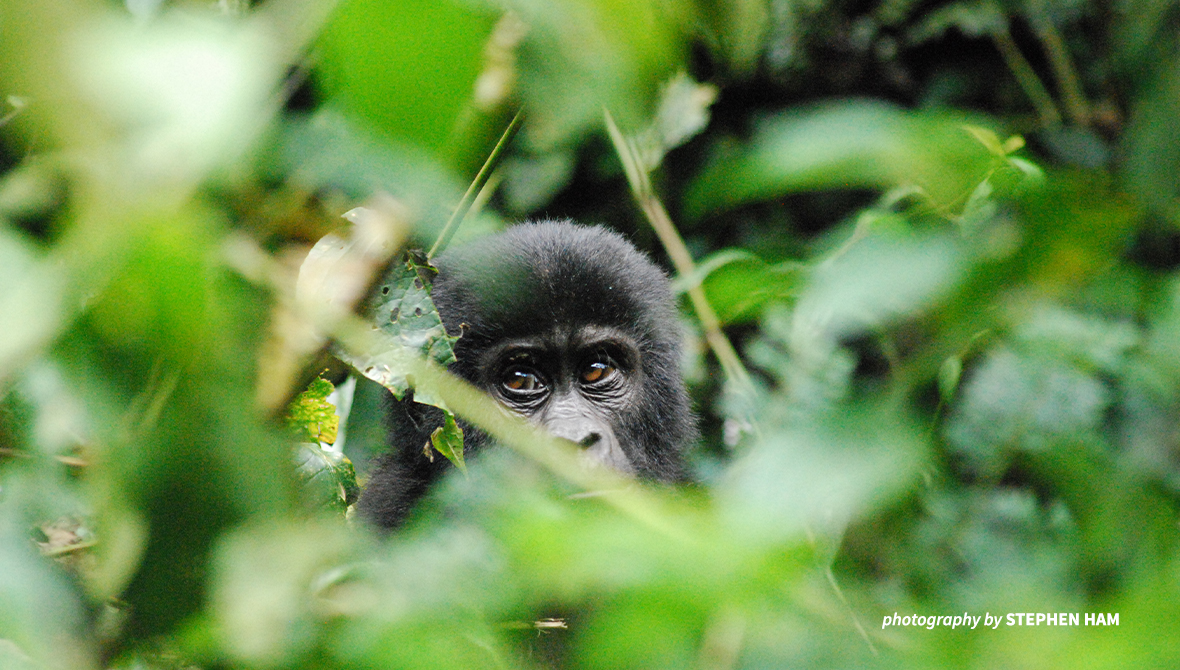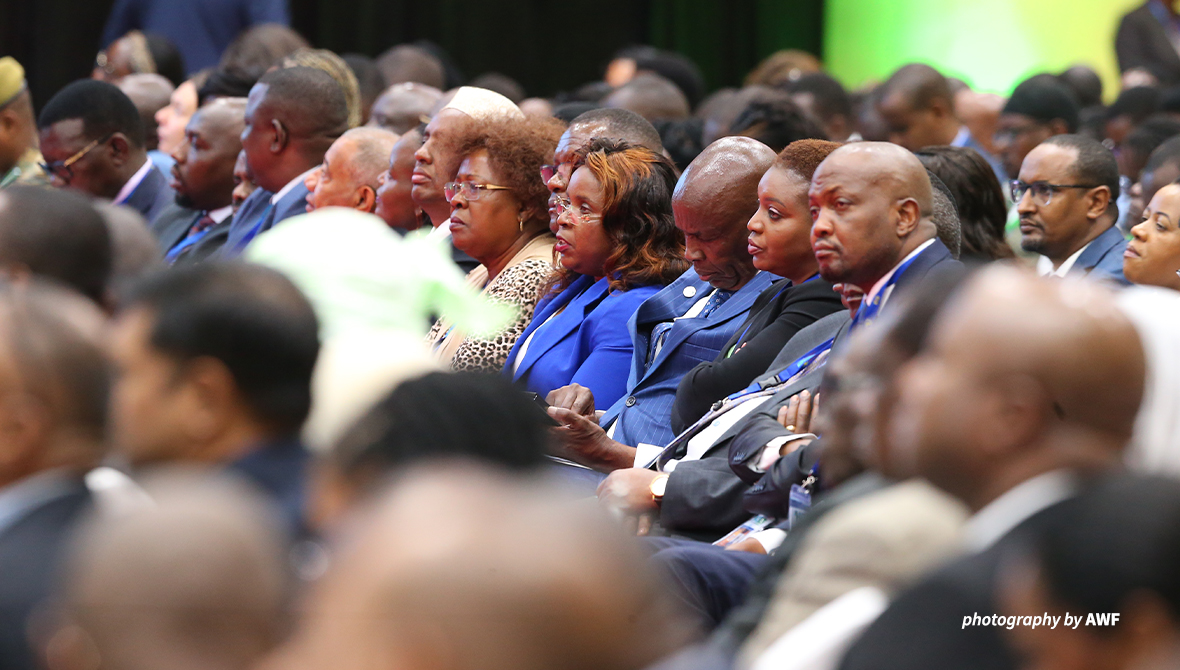Will Africa prioritize nature as part of the solution to climate change?

The inaugural Africa Climate Summit held in Nairobi, Kenya, was an important milestone in defining how Africa chooses to engage with the world on climate change. The Summit gathered leaders and senior government representatives from more than twenty countries to define an African agenda for meeting global targets and addressing the impact of climate change on the continent. It resulted in the Nairobi Declaration and financial commitments of about $23 billion. In line with AWF's vision to see a more unified approach when it comes to sustainable development in the continent, this is a step in the right direction; however, more focus on nature as part of the solution is needed.
Running concurrently was Africa Climate Week, an annual event co-convened by the United Nations Framework Convention on Climate Change and the African Union in preparation for the annual global Conference of Parties (COP). This year’s climate COP (COP28) will take place in Dubai November 30 through December 12.
Across the week, AWF worked with partners to help ensure protecting biodiversity was on the table as an essential part of economic growth and as a solution to meeting climate challenges. It was clear the message resonated, although it was also clear that getting funding to the ground remains a challenge. Among announcements related to biodiversity was AWF’s new partnership with the Swedish International Development Cooperation Agency (SIDA) for a $5.5M four-year project focusing on conservation and climate resiliency in southern Kenya.
What were the conservation-focused outcomes from the Africa Climate Summit, and what should we, as conservationists, have top of mind as the world gathers in Dubai in November? AWF’s Senior Vice President of Conservation Strategy, Impact and Learning, Charly Facheux, shares his insights.
Charly, what was your overall takeaway from the Summit?
My biggest takeaway was how Africa is redefining its role. Africa does not want to be seen as a beneficiary, or even a stakeholder in the global policy process. Africa is pushing to be seen as a leader, and that is a very good and important takeaway. It's about Africa wanting to be part of setting the global agenda. That is critical. And it is important for AWF and our mission to develop African leadership at all levels, that the Summit wasn’t just about heads of state. It included youth, civil society organizations, IPLC leaders, and the African private sector. That is, for me, a very positive sign.
It also clarified that we are in a moment where the effects of climate change can't be the only lens for looking at Africa. Of course, the effects are there. We need to cope. But we can also see how those challenges can be addressed as opportunities. And importantly, at AWF, we want the opportunities in Africa to be driven by Africans.
What do you foresee coming out of the Nairobi Declaration itself? What gives you hope?
An area of hope was the commitments from the private sector. The African private sector not only represents investment; as a group, they also contribute to climate change and are impacted by its effects. For them to deeply engage is critical. Just having them there was big, and for them to be sitting with government and civil society organizations was important. I haven’t seen that before, and that is something we need. And I hope that this is just the start. Because heading towards COP28, we need to see more of it.
There was also a push to create a tax on large emitters in order to be able to support sustained climate change financing. That is very encouraging, but it will only work if it is operationalized so that people on the ground—like the communities we partner with across our landscapes—benefit from it. That financing pathway is not yet clear, but it felt like a start.

The Africa Climate Summit took place September 4-6 during Africa Climate Week in Nairobi, Kenya.
Looking ahead, what does AWF want to achieve at COP28?
Part of our vision as an organization is empowering Africans at all levels to define and own the conservation agenda in Africa. As part of this, we will continue to support diverse leadership perspectives drawn from networks like ACBA (African Civil Society Biodiversity Alliance) and APAD (Africa Protected Areas Directors). And of course, we will continue to support youth voices, who have a big stake in the future of the plant.
We want to make sure that there is a very clear connection between two global agendas—preventing biodiversity loss and combating climate change. They must go hand-in-hand, but they haven’t been considered together before. That is changing.
That’s a great point about bringing biodiversity into the climate discussion. How do you see it coming into play at COP28?
In declarations around climate change, there's always very little reference to nature, and nothing that overtly mentions biodiversity. If I remember correctly, maybe there are one or two elements that include nature within the newly adopted Nairobi Declaration. And it is always a subtle mention of the concept “nature”—overlooking the importance of biodiversity in keeping our global ecosystems healthy.
The strategies the world is endorsing to prevent further biodiversity loss need to be connected to those for climate change. That is work these global conventions need to address. And I am optimistic, coming from COP27 in Egypt and heading to COP28 in Dubai, that the conversation is happening. Until there is a true integration between addressing biodiversity loss and its impacts and addressing climate change and its impacts, we are essentially fighting a fight with one hand tied behind our back.
The second thing that is important from AWF’s perspective is the outsized role of Africa in addressing both crises. Neither battle can be won if they are not fought in partnership with Africa. Both in terms of benefit contributions and in terms of solutions.
Where do you see the biggest overlap between climate and biodiversity?
Beyond the basic fact that biodiversity promotes resilience to climate change, the biggest overlap will be coexistence between wildlife and people. We're going to see the effects of climate change driving the need to negotiate space for both differently, shaped by things like climate-based migrations, competition for resources, and increasing human-wildlife conflict. I think we are going to need to be very thoughtful about designing landscapes that balance the needs of people—for progress and opportunity, for youth and their future—with the needs of wildlife.
Do you have a long-term vision of what conservation can look like in Africa? What would you like to see in 2030 and beyond?
Wow, that is a one-billion-dollar question. I hope to see the seeds we are planting today starting to blossom. We need Africans to really understand the context and repercussions of our decisions. We are the fastest-growing continent with a population set to double. Two-thirds of the population is under age 35. Today, over 60% of the land in Africa is degraded. We really need to reverse that and really work to restore more lands. Because if that degradation continues, and our population growth trend continues, then there is going to be a big clash in the near future.
I’d like to see that resolved. And I think it is possible. Restoration of degraded land happens when we negotiate space effectively. So for every kilometer that is restored, we are thoughtful and forward-looking about how it best meets human needs and biodiversity (mainly wildlife) needs, and we find the balance that allows us to safeguard overall ecosystem viability.